| Srl | Item |
| 1 |
ID:
107958
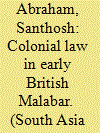

|
|
|
|
|
| Publication |
2011.
|
| Summary/Abstract |
This article examines the development of colonial law in Malabar between 1792 and 1810. Within the historical context of emerging colonialism as a pivotal factor, it shows that there was no simple unilinear process in the making of colonial law in this region of India, but rather a series of continuities and discontinuities of practices. A clear shift in the logic of governance is identified, however, as new technologies of power, particularly writing and documentation, resulted in several formalities of practices in the making of the colonial state and legal system in India.
|
|
|
|
|
|
|
|
|
|
|
|
|
|
|
|
| 2 |
ID:
147468
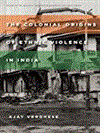

|
|
|
|
|
| Publication |
California, Stanford University Press, 2016.
|
| Description |
xviii, 273p.Pbk
|
| Standard Number |
9780804798136
|
|
|
|
|
|
|
|
|
|
|
|
Copies: C:1/I:0,R:0,Q:0
Circulation
| Accession# | Call# | Current Location | Status | Policy | Location |
| 058786 | 305.800954/VER 058786 | Main | On Shelf | General | |
|
|
|
|
| 3 |
ID:
190731
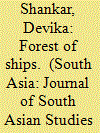

|
|
|
|
|
| Summary/Abstract |
This paper examines how the annexation of Malabar by the English East India Company in the last decade of the eighteenth century allowed the colonial administration to experiment with novel forms of state control in the region’s forests. At the same time, through a focus on the connections forged between Malabar’s forests and Bombay’s dockyards, this paper will use archival sources to examine the crucial role played by the timber monopoly introduced in 1806 in dislodging Malabar and its ports from their central position in the Indian Ocean economy and facilitating their incorporation into the margins of the emerging colonial economy.
|
|
|
|
|
|
|
|
|
|
|
|
|
|
|
|
| 4 |
ID:
117924
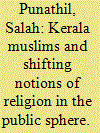

|
|
|
|
|
| Publication |
2013.
|
| Summary/Abstract |
This article primarily assesses the articulations of Mappila Muslim identity in the public sphere formed in colonial Malabar, especially after the Malabar Rebellion of 1921. The colonial history of the public sphere in Malabar serves as a backdrop to a better understanding of the construction of present-day Muslim identity in Kerala in terms of power and domination. It is shown that a Muslim community that rebelled against the colonial state in northern Kerala earlier and came to be seen as aggressive, uncivilised and religiously fanatic, still faces strong resentment and distrust today, while the memory of subalternity remains present, too.
|
|
|
|
|
|
|
|
|
|
|
|
|
|
|
|
| 5 |
ID:
127696
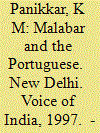

|
|
|
|
|
| Publication |
New Delhi, Voice of India, 1997.
|
| Description |
xvi, 221p.Hbk
|
| Contents |
B
|
|
|
|
|
|
|
|
|
|
|
|
Copies: C:1/I:0,R:0,Q:0
Circulation
| Accession# | Call# | Current Location | Status | Policy | Location |
| 057572 | 954.8/PAN 057572 | Main | On Shelf | General | |
|
|
|
|
| 6 |
ID:
151138
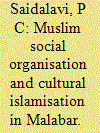

|
|
|
|
|
| Summary/Abstract |
This article calls for a re-evaluation of basic concepts
such as caste and status groups for making sense of the social
organisation of Muslims in Malabar. Muslim social groups, while
disseminating notions of egalitarian claims of Islam, rationalise
social divisions and discriminatory practices among themselves
largely in terms of Islamic juristic concepts of purity, knowledge,
piety and morality. Due to increasing Islamisation, these notions
have been reconstructed to sustain social divisions among Muslims.
Therefore, it is argued here that social divisions among Muslims in
Malabar today do not derive primarily from acculturative influences
of Hinduism. The article concludes that since sociological concepts
such as caste, ethnicity and status groups as used in South Asia have
failed to capture this Islamic cultural mediation, these phenomena
need to be further researched.
|
|
|
|
|
|
|
|
|
|
|
|
|
|
|
|